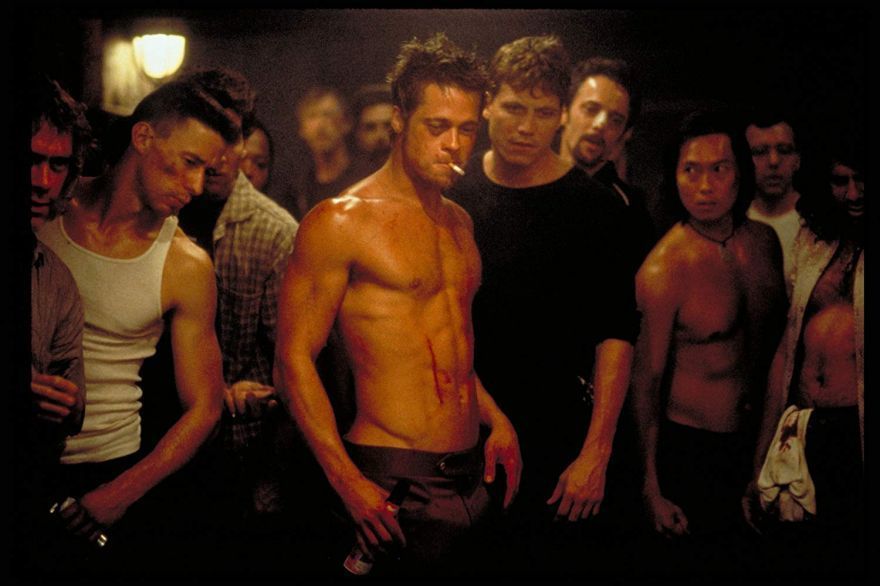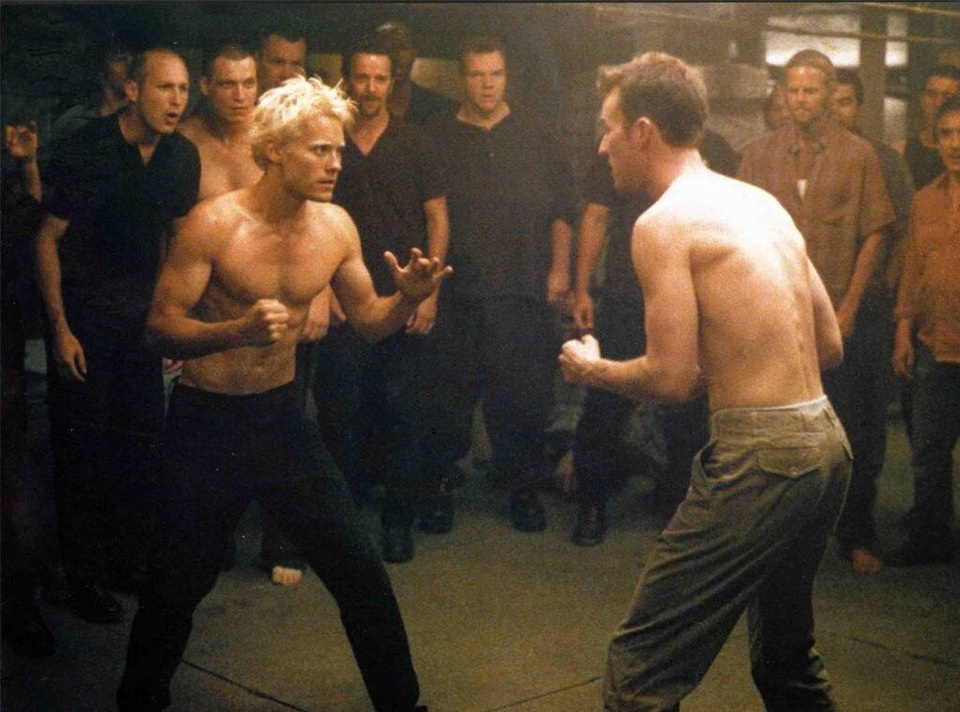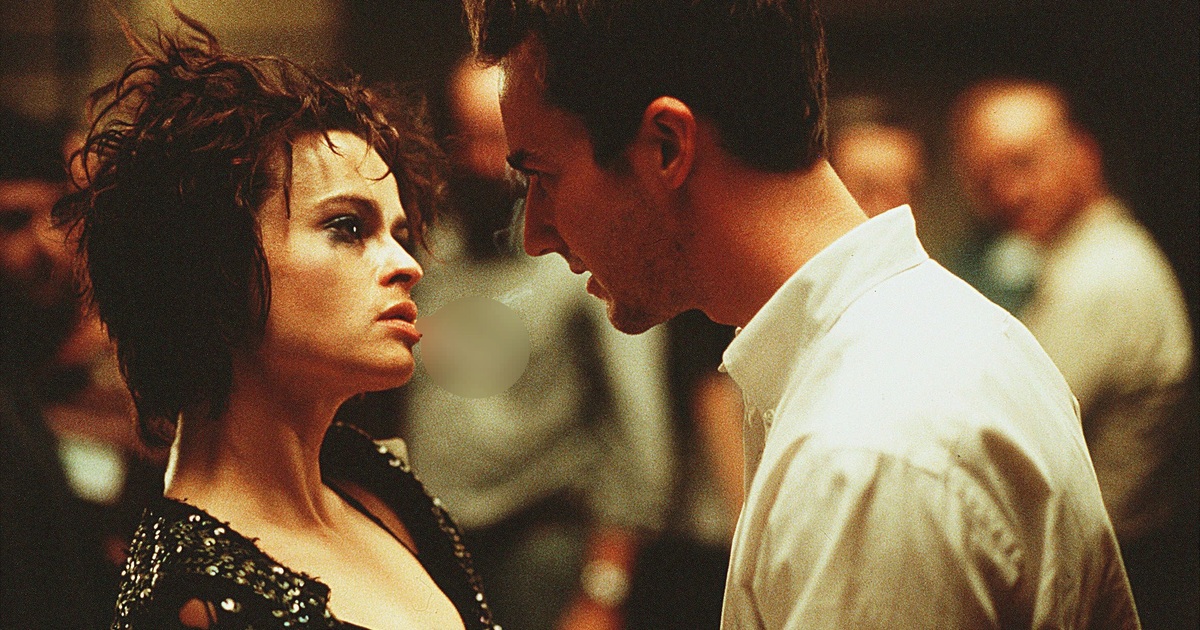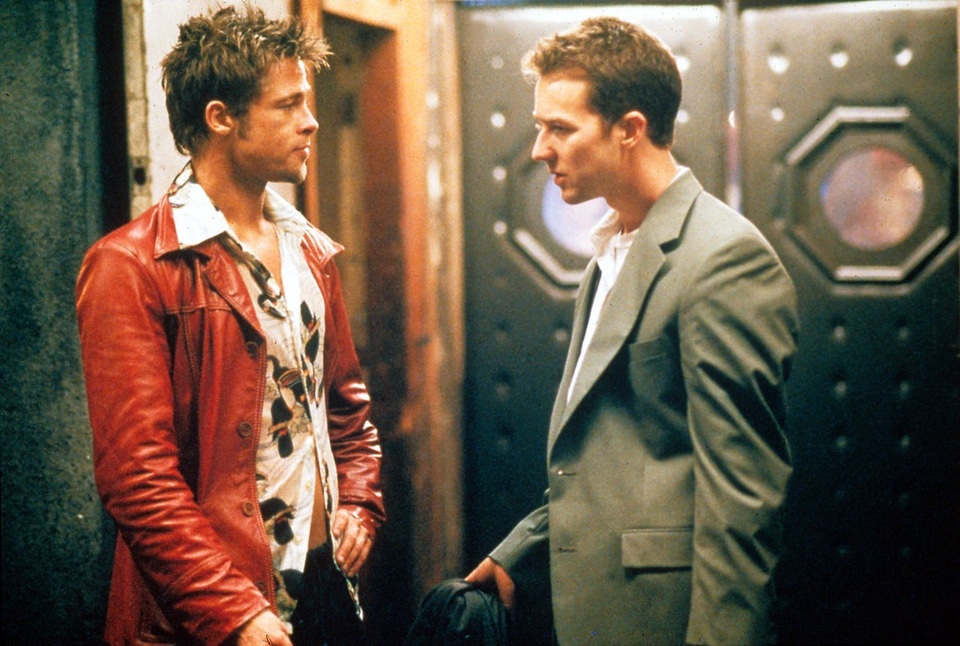Fight Club (1999)

David Fincher’s “Fight Club,” released in 1999, remains a cinematic masterpiece that challenges societal norms and explores the darker aspects of contemporary existence. Adapted from Chuck Palahniuk’s novel of the same name, the film delves deep into themes of identity, alienation, consumerism, and the search for meaning in a world increasingly defined by materialism and superficiality.
Set in an unnamed city that epitomizes the soulless urban landscape, “Fight Club” introduces us to the Narrator (played by Edward Norton), a white-collar worker suffering from insomnia and a gnawing sense of emptiness. Estranged from his own life and trapped in a monotonous cycle of corporate drudgery, the Narrator finds solace in attending support groups for various afflictions—despite not having these afflictions himself.

Everything changes when the Narrator encounters Tyler Durden (portrayed by Brad Pitt), a charismatic soap salesman with a nihilistic worldview and a penchant for breaking societal rules. Together, they form an underground fight club as a form of catharsis—an outlet for frustrated men seeking to reclaim a sense of masculinity stripped away by consumer culture and societal expectations.
At its core, “Fight Club” is a scathing critique of modern consumerism and its impact on individual identity. The film portrays a world where people define themselves by what they own and consume, perpetually chasing after material possessions as a substitute for genuine fulfillment. Tyler Durden emerges as a charismatic antihero who rejects conventional values and encourages others to embrace chaos and rebellion against the soul-crushing conformity of modern life.

The film’s exploration of masculinity is particularly poignant, as it examines how traditional notions of manhood—strength, dominance, and control—are distorted and commodified in a consumer-driven society. Through brutal fights and subversive acts of vandalism, the members of Fight Club seek to reclaim a sense of agency and authenticity in a world that reduces them to mere consumers and spectators.
Furthermore, “Fight Club” is notable for its narrative complexity and unreliable narrator, which invite viewers to question the reality presented on screen. The twist involving the true nature of the Narrator and Tyler Durden challenges perceptions of identity and agency, blurring the lines between protagonist and antagonist, reality and illusion.

Visually, David Fincher’s direction imbues the film with a gritty and stylized aesthetic that reflects the characters’ disillusionment and alienation. From the dimly lit basements where Fight Club takes place to the sleek corporate offices where the Narrator works, each setting underscores the film’s themes of urban decay and existential malaise.
The performances of Edward Norton and Brad Pitt are central to the film’s success. Norton portrays the Narrator’s descent into disillusionment and madness with subtlety and introspection, while Pitt’s portrayal of Tyler Durden exudes charisma and anarchic energy. Their dynamic on-screen chemistry fuels the film’s narrative tension and philosophical discourse, making “Fight Club” a thought-provoking exploration of contemporary angst and rebellion.

In conclusion, “Fight Club” remains a powerful and provocative film that resonates with audiences for its incisive critique of consumer culture, its exploration of modern masculinity, and its narrative innovation. Through its complex characters, visceral imagery, and philosophical underpinnings, the film challenges viewers to confront uncomfortable truths about identity, society, and the search for meaning in an increasingly alienating world.
As a seminal work of 1990s cinema, “Fight Club” continues to inspire debate and analysis, leaving an indelible mark on popular culture and reaffirming David Fincher’s reputation as a visionary filmmaker unafraid to explore the darker recesses of the human experience.









